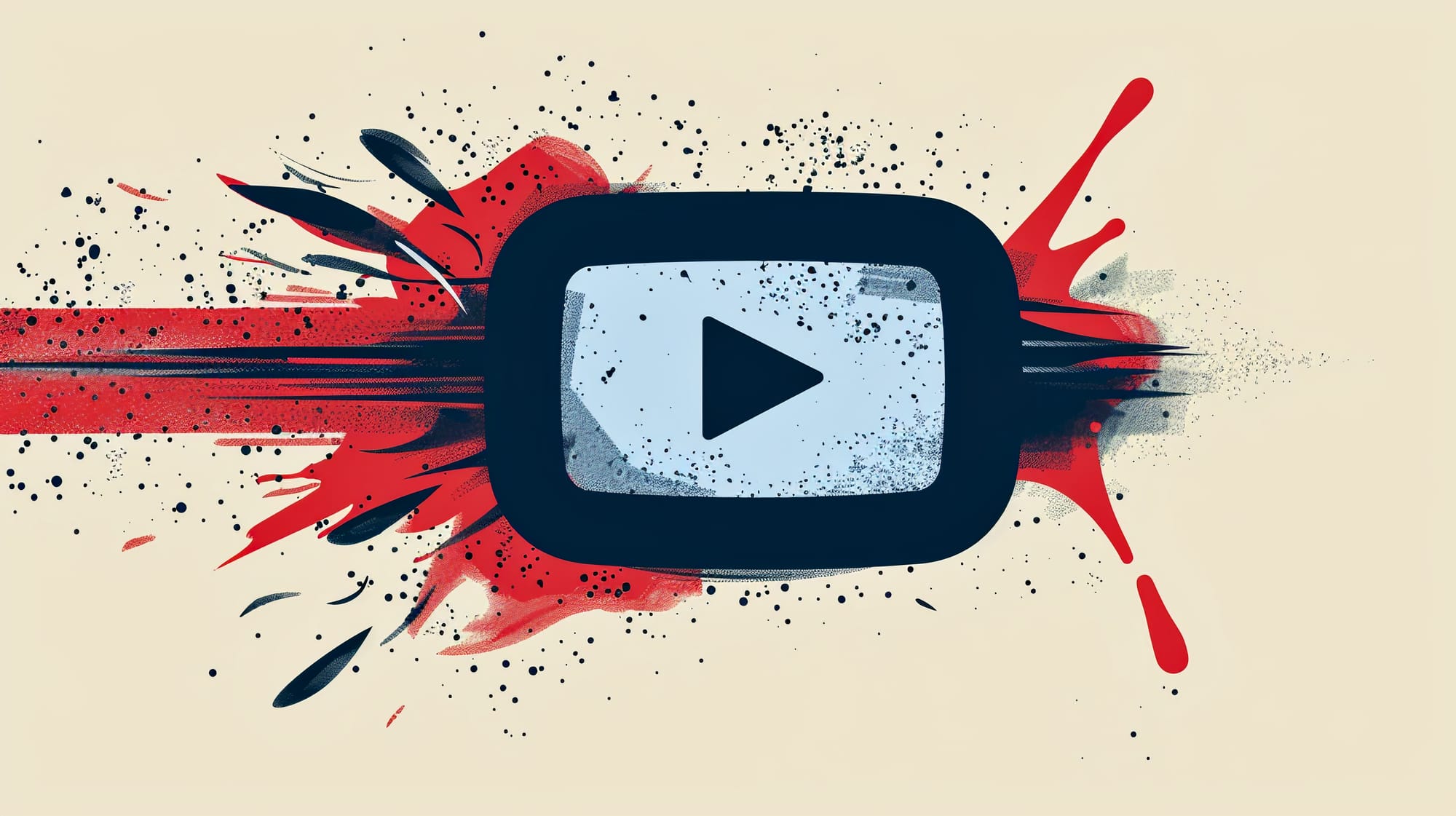YouTube's dangerous embrace of podcasting
YouTube is becoming the default way for Android users to consume podcasts. But the video platform is not exactly staying true to the podcast standards.

Over the last few months, I've been teaching a new podcast-centric version of my Audience Strategy module for MA students at City. It's been a blast, working with the first wave of students on our MA Podcasting, who are all terrifyingly bright, and have really pushed me to learn and deliver more through the course.
You can see some of the output of their work through Word on the Square, their podcast. Here's a trailer:
One revelation to me, early in my work, is how important YouTube is becoming to podcasting. That's built on two things:
- YouTube Shorts, like related formats (TikTok, Reels), is a social point of audience growth for podcasts, by using social video extracts from the recording to promote the podcast.
- YouTube is becoming the default Google way of consuming Podcasts, with the coming global closure of Google Podcasts.
That's bringing a bunch of challenges, so it was interesting to see YouTube's chief product officer talking about their plans on their Creator Insider video series. I've started the video at the key point for you - before that is largely waffle around favourite podcasts:
Rene Ritchie, Youtube Creator Liaison sums up the key points:
- YouTube's secret sauce is our recommendations. They help people discover something new or go deeper on what they love, while helping podcasters reach new audiences only found on YouTube.
- YouTube uniquely offers podcasts that fit your lifestyle. Listen in your car with YouTube Music, then finish the episode at home by watching on YouTube with your TV.
For me, though, the key point is that they have no intention right now of making YouTube a traditional podcast host. That's what the “RSS out” discussion is all about. YouTube will happily pull in your podcast via RSS, and welcome it into YouTube. But if you choose YouTube as your default host, they aren't planning on offering an RSS feed of it. That means that, if a podcasts is only on YouTube, there's no way to listen to it in your podcast app of choice. That's a more worrying land grab that Spotify attempted back in the day. If a large proportion of Android users switch to YouTube for podcast consumption, the radical freedom of podcasting erodes.
YouTube versus Acast

Our MA Podcasting course has a great relationship with two major podcasting players:
- Spotify, who are sponsoring a bursary for a place on the course
- Acast, who provided the hosting for Word on the Square.
Acast is having a good year:
Acast is “on track” to make a profit in 2024 after it posted double-digit organic growth in the first quarter. The global podcast platform recorded 23% organic net sales growth in Q1, “primarily driven” by 48% growth in North America. Europe and other markets posted 16% and 20% growth respectively.
However, one aspect of their business is proving a stumbling block with YouTube. From Acast's press release:
As one of its first major marks on the podcast industry Acast invented dynamic ad insertion, which enables up-to-date and relevant advertising to be inserted into a podcast episode at the moment a listener hits play.
This is proving a stumbling block with YouTube.
YouTube doesn't want Acast ads on its platform
Towards the end of the module, we added the podcast to YouTube, but found that it would never ingest the Acast feed. Eventually, I figured out why: YouTube requires that all submitted podcasts be ad-free:
Podcast hosting and sales company Acast has blocked YouTube’s access to its RSS feeds saying that the burgeoning podcast platform’s requirement that all submitted podcasts be free of ads clashes with its revenue model.
I found a slightly painful and laborious work around, so the podcast is now available on YouTube, as you can see (and hear):
But it's an interesting early warning sign that the battle over podcasting is heating up. There's money in them there pods, and that means some of the platforms are going to get very squarely indeed about what you can and can't do.





